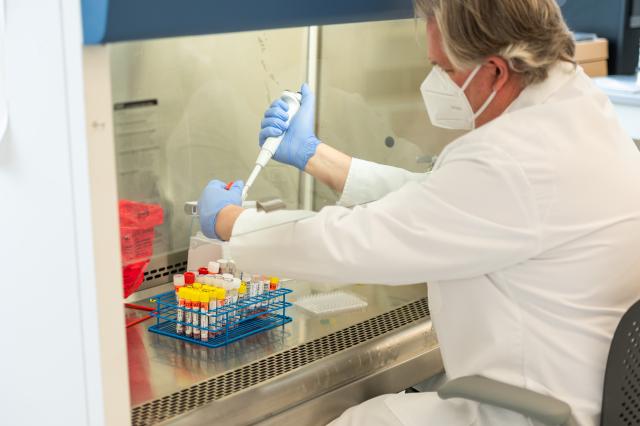Summer Fellowship Program Raises University’s Research Profile

An online Oral History of COVID-19 is one of the research projects launched at Kean this summer.
Kean researchers measured the impact of Black-owned businesses, began an online oral history of COVID-19, and investigated an array of other topics through the University’s inaugural Summer Research Fellowship Program.
Twenty faculty projects were awarded funding through the new program, which was created to expand research activities at Kean and advance the University’s goal of becoming an R-2 research institution.
“Kean University is proud of its research, and we seek to build on that strength and develop our profile as a leading urban research university,” said Kean President Lamont O. Repollet, Ed.D. “Many of the projects focus on equity issues. Through research, Kean is working to solve problems and provide insight on issues that impact our local communities and the world at large.”
The Carnegie Commission on Higher Education, which supports research at colleges and universities, defines R-2 universities as those having “high research activity.”
The cross-disciplinary research fellowship projects, many of which are still ongoing, range from liberal arts to the sciences. Nearly 40 applications were submitted by faculty, and most include student researchers.
“We requested proposals that reflect Kean’s mission, especially with a focus on the urban environment,” said Kean Senior Vice President for Research Jeffrey H. Toney, Ph.D. Applicants showed how their work would build research opportunities for students and support a robust culture of research at Kean.
“This program made it possible for our faculty to truly focus on research,” Toney said.
Min Chung Han, Ph.D., an assistant professor of marketing in Kean’s College of Business and Public Management, received a fellowship to research the visibility and impact of Black-owned businesses. Her research is ongoing.
Working with student researcher Adrian Peralta, the project uses a focus group and online survey to explore attitudes about minority-owned businesses. The project was prompted by last year’s Black Lives Matter movement and the COVID-19 pandemic, Han said.
“Those events sparked national discussions on the importance of supporting Black-owned businesses. Data shows consumers have increasingly put their money where their mouth is, by spending more at Black-owned businesses, but it is still uncertain how minority ownership information influences young consumers’ awareness,” she said.
Peralta, a senior marketing major, said he was thrilled to be involved “not only because I advocate for diversity and inclusion, but also because I’m a minority myself. This project helps me strive to always challenge myself.”
Assistant Professor Brian Oakes, who teaches Media and Journalism, also launched a research project motivated by the pandemic. His Kean University COVID-19 Oral History Project combines communication, sociology and art to “create a snapshot of the lives of our diverse community members — their struggles as well as their successes — during the pandemic.”
Student researchers are conducting interviews in-person and through Zoom. The project will include an online collection of individuals’ stories, with one story told in an animated film.
“This project was created to engage students and the Kean community, highlight our diverse student body, encourage interpersonal communication, and create an archive of historical and cultural importance that will benefit society,” Oakes said.
The projects will be highlighted at a symposium this fall, where researchers may share findings or plans to continue their work. The hope is that some projects will seek external grant funding.
Kean History Professor Elizabeth Hyde, Ph.D., who served on the committee that developed the program, said it is essential to support research.
“This program is a demonstration that Kean University’s administration wants to actively support faculty research as we look to make Kean into New Jersey’s premier urban research university,” she said.